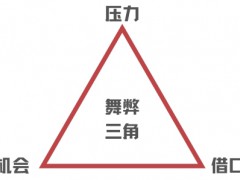據(jù)油價(jià)網(wǎng)8月24日消息稱,美國(guó)投資者的猶豫不決來自美國(guó)政策導(dǎo)向轉(zhuǎn)向清潔能源,以及全球推動(dòng)以可再生能源取代化石燃料。然而,近幾個(gè)月來,投資者似乎意識(shí)到,石油和天然氣——特別是資源國(guó)家生產(chǎn)的石油和天然氣田——將在幫助全球能源安全方面發(fā)揮重要作用。
華爾街和投資組合投資者支持能源轉(zhuǎn)型中的清潔能源機(jī)會(huì),但在地緣政治沖突發(fā)生后,世界正在應(yīng)對(duì)前所未有的能源危機(jī),爭(zhēng)奪能源安全之際,他們并沒有放棄傳統(tǒng)能源。
隨著石油和天然氣價(jià)格飆升,大型石油公司實(shí)現(xiàn)了創(chuàng)紀(jì)錄的利潤(rùn),投資者也逐漸意識(shí)到化石燃料仍然占全球能源消費(fèi)的80%,世界現(xiàn)在需要更多的化石燃料,以避免冬季能源配給。
因此,資產(chǎn)管理公司和私人股本公司在向更安全、更清潔的能源的競(jìng)爭(zhēng)中支持這兩匹市場(chǎng)黑馬。銀行也在為石油和天然氣以及可再生能源項(xiàng)目安排融資。
梁金燕 摘譯自油價(jià)網(wǎng)
原文如下:
Investors Haven’t Given Up On Oil Completely
The hesitancy among investors comes from the policy’s pivot to clean energy and the global push for replacing fossil fuels with renewable energy sources. However, in recent months investors seem to have realized that oil and gas – especially such produced in source countries– will play an important role in helping global energy security.
Wall Street and portfolio investors are backing clean energy opportunities in the energy transition, but they haven’t given up on conventional energy as the world grapples with an unprecedented energy crisis and scrambles for energy security after the war.
Energy has been the top-performing sector of the market this year as oil and gas prices surged, Big Oil booked record profits, and investors have come to realize that fossil fuels still make up 80% of global energy consumption and the world needs more of those fuels now to avoid winter rationing of energy.
So, asset managers and private equity firms are backing both horses in the race toward more secure and cleaner energy sources. Banks are also arranging financing for both oil and gas and renewable energy projects.
免責(zé)聲明:本網(wǎng)轉(zhuǎn)載自其它媒體的文章及圖片,目的在于弘揚(yáng)石化精神,傳遞更多石化信息,宣傳國(guó)家石化產(chǎn)業(yè)政策,展示國(guó)家石化產(chǎn)業(yè)形象,參與國(guó)際石化產(chǎn)業(yè)輿論競(jìng)爭(zhēng),提高國(guó)際石化產(chǎn)業(yè)話語權(quán),并不代表本網(wǎng)贊同其觀點(diǎn)和對(duì)其真實(shí)性負(fù)責(zé),在此我們謹(jǐn)向原作者和原媒體致以崇高敬意。如果您認(rèn)為本站文章及圖片侵犯了您的版權(quán),請(qǐng)與我們聯(lián)系,我們將第一時(shí)間刪除。







